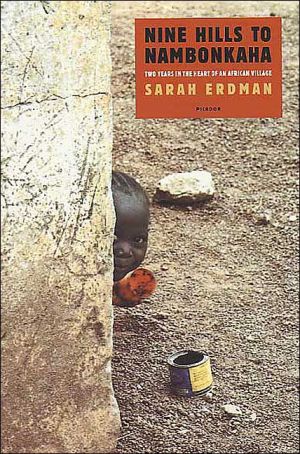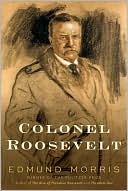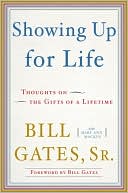Nine Hills to Nambonkaha: Two Years in the Heart of an African Village
The village of Nambonkaha in the Ivory Coast is a place where electricity hasn’t yet arrived, where sorcerers still conjure magic, where the tok-tok sound of women pounding corn fills the morning air like a drumbeat. As Sarah Erdman enters the social fold of the village as a Peace Corps volunteer, she finds that Nambonkaha is also a place where AIDS threatens and poverty is constant, where women suffer the indignities of patriarchal customs, and where children work like adults while still...
Search in google:
A portrait of a resilient African village, ruled until recently by magic and tradition, now facing modern problems and responding, often triumphantly, to changeWhen Sarah Erdman, a Peace Corps volunteer, arrived in Nambonkaha, she became the first Caucasian to venture there since the French colonialists. But even though she was thousands of miles away from the United States, completely on her own in this tiny village in the West African nation of Côte d'Ivoire, she did not feel like a stranger for long. As her vivid narrative unfolds, Erdman draws us into the changing world of the village that became her home. Here is a place where electricity is expected but never arrives, where sorcerers still conjure magic, where the tok-tok sound of women grinding corn with pestles rings out in the mornings like church bells. Rare rains provoke bathing in the streets and the most coveted fashion trend is fabric with illustrations of Western cell phones. Yet Nambonkaha is also a place where AIDS threatens and poverty is constant, where women suffer the indignities of patriarchal customs, where children work like adults while still managing to dream. Lyrical and topical, Erdman's beautiful debut captures the astonishing spirit of an unforgettable community. The Washington Post Erdman sets about her incremental work—wheedling mothers to weigh their babies, gently broaching the scandalous topic of AIDS—with the eye of a social scientist and the ear of a poet. It was a long and fascinating trip, and her delightful telling of it has me hoping she'll be packing for another one soon.—Steve Hendrix
\ From Barnes & NobleBarnes & Noble Discover Great New Writers\ You've heard the drill before: A young American travels to Africa to spend two years in the Peace Corps. But this is not the same old story, and Sarah Erdman is not your average writer. Everything about this book rises above its predecessors. Everything. \ Erdman fully absorbed the complex culture of the West African village to which she was assigned, and in Nine Hills to Nambonkaha, she shares the gift of her experience, enfolding readers in the place that challenged her, provoked her, and transformed her in memorable ways. Erdman's prose is lucid and rhythmic, her voice comfortable and insightful. Her storytelling? Poetic and superb.\ Assigned to a village in northern Côte d'Ivoire, Erdman longs to help the residents overcome the blight of AIDS and poverty, to protect their women from female circumcision, and to promote education to the suffering populace. But the villagers' culture stands outside of time; the same word is used both for "today" and "tomorrow." Into this place, Erdman injects a humble confidence, both passionate yet teachable. With inner strength and honesty, her relationships grow and deepen, and as the villagers struggle to adapt to an ever-encroaching modernity, true friendship seeps warmly onto the page.\ Having read this book, it's safe to say that Sarah Erdman is probably a great example of a Peace Corps volunteer. She is certainly a great new writer. (Fall 2003 Selection)\ \ \ \ \ \ From the Publisher"Sarah Erdman's voice rings with a distinct and refreshing intimacy....This book is simply about people and their stories. In the joys and failures of daily routines in a small African village, she finds life itself."—Peter Hessler, author of Rivertown\ "Exemplary...The writing has the narrative pulse of good fiction, and is as absorbing."—Norman Rush, author of Mortals\ "Sarah Erdman has been blessed with these gifts: a fervent curiosity, a generous heart, a lightly self-mocking manner, and a fluent and poetic language...A vivid, at turns hilarious, at turns terrifying, important, and beautiful book."—Melissa Fay Greene, author of Praying for Sheetrock\ "It is rare to be so completely transported to another land....[Erdman’s] powers of observation, her prose, and her daring are truly Orwellian."—Abraham Verghese, author of My Own Country\ \ \ \ The Washington PostErdman sets about her incremental work—wheedling mothers to weigh their babies, gently broaching the scandalous topic of AIDS—with the eye of a social scientist and the ear of a poet. It was a long and fascinating trip, and her delightful telling of it has me hoping she'll be packing for another one soon.—Steve Hendrix\ \ \ \ \ Publishers WeeklyErdman, who now works for the Peace Corps in Washington, D.C., spent two years in Nambonkaha, a northern Ivory Coast village, starting in 1998. As a culturally sensitive community development volunteer, she took her time finding her niche. She started working on maternal and child health by introducing the regular weighing of babies, as a means of monitoring malnutrition and as a way of opening the door to a wider range of health-care interventions. Without funds or equipment, this boiled down to rudimentary first aid: cleaning and bandaging wounds, cooling down a fever or recognizing malaria and going to the nurse for pills. By the end of Erdman's stay, with the support of the village, she'd moved on, very successfully, to birth control and AIDS prevention education. Happily, Erdman focuses on the story behind the story: how she learned local ways, how she gained the confidence and friendship of assorted villagers and even how she couldn't do anything about some atrocities, like female genital mutilation. In the end, she understands the village world view so well, she can imagine better ways to deal with certain issues, like promoting condom usage: what if international health organizations had depicted AIDS as a sorcery problem and "introduced condoms, with the help of chiefs and fetisheurs, as the only fetish that can stave off" the disease? This is an engrossing, well-told tale certain to appeal to armchair travelers and to anyone-especially women-considering international volunteer work. Agent, William Clark. (Sept.) Copyright 2003 Reed Business Information.\ \ \ \ \ Library JournalIn this complex debut, Peace Corps worker Erdman, who lived in eight countries growing up, takes the reader on a vivid and compelling journey into the colorful world of a small village in the Ivory Coast. Arriving in early 1998, she faced extraordinary challenges as she taught children how to read and women about nutrition and birth control, overcoming superstition, language barriers, ignorance, diseases, lack of funding, and her own personal fears. The lecherous gendarme; the many children; the old women of the village, who raise money to begin building a clinic; and Erdman's friends, local nurse Sideb and his wife, Abi, are all wonderful, three-dimensional characters that liven up the narrative. Erdman's eloquent descriptions allow the reader to appreciate the scenes of cautious yet excited village women who show up each month for the healthy-baby contest and then to desperation at the description of a baby dying of AIDS. The author's sensitivity to the traditions of the villagers, the unique ways she found to overcome and incorporate those traditions in her work, and the despair she sometimes felt over the intrusion of the modern world make this a complicated but also contemplative book. Highly recommended for all libraries.-Linda M. Kaufmann, Massachusetts Coll. of Liberal Arts Lib., North Adams Copyright 2003 Reed Business Information.\ \ \ \ \ Kirkus ReviewsA thoughtful memoir of Peace Corps service in West Africa, with all the hallmarks of the subgenre. First-time author Erdman brings a large heart and a sense of humor to her account of her two-year stint in the interior of the Ivory Coast, providing healthcare in a market town in which nothing is quite as it seems. Though Islamic, for instance, the residents of the town were not inclined to take their religion with the grim determination of some of their fellow faithful: "For a small minority of Nambonkaha residents," Erdman writes, "Ramadan is a time of fasting and atonement. For the rest it means a month of talking about fasting that ends in a big party." Like many another Peace Corps memoir, Erdman's tale follows a trajectory that begins with cultural misunderstandings, with an appropriate level of self-pity ("Too much is foreign; too much is missing. I'm all alone surrounded by people"), and that arcs into understanding, acceptance, and friendship. Erdman steers away from the usual pieties, though, and delivers some sharp observations on rural life in Africa while poking fun at herself, e.g., as she confronts a plate of bushrat stew prepared by a local trickster who enjoys her squeamishness: "Ahhhh! La tête! My favorite part! Look, there are its little teeth!" There are plenty of serious moments, though, as when Erdman ponders the astonishing corruption that keeps the Côte d'Ivoire, with an economy that is the third largest in sub-Saharan Africa, impoverished and struggling; the upper class has plenty of money, she notes, but it "never seems to seep through to the rest." By the end of her memoir, Erdman has taken to a more or less relativistic view of such things, and even if theycontinue to bother her, she is fierce in defending the people of the Ivoirian interior from Western misperceptions and stereotypes. Sometimes treacly, but mostly charming. A worthy debut. Agent: William Clark\ \








